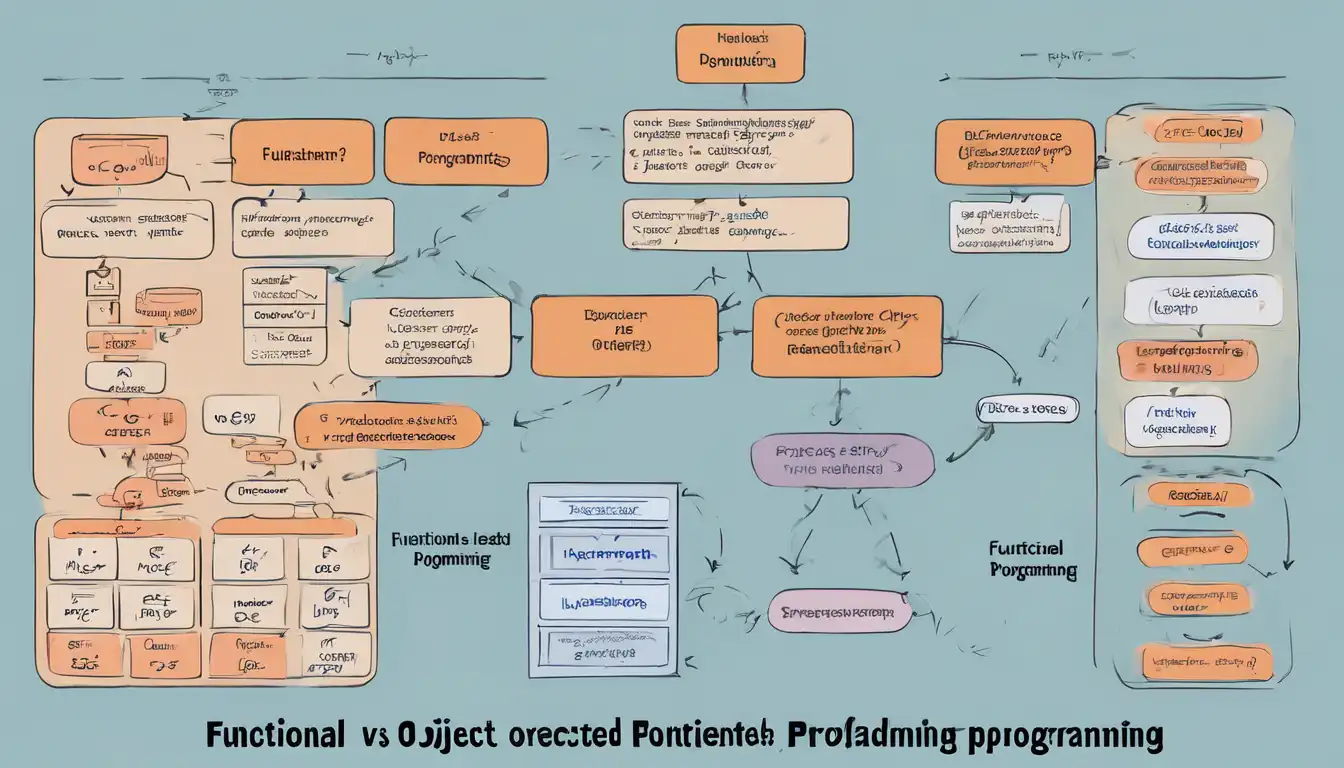Introduction to Programming Paradigms
In the world of software development, understanding the different programming paradigms is crucial for choosing the right approach for your project. Two of the most popular paradigms are Functional Programming (FP) and Object-Oriented Programming (OOP). This article delves into the core differences, advantages, and use cases of each to help you make an informed decision.
What is Functional Programming?
Functional Programming is a paradigm that treats computation as the evaluation of mathematical functions and avoids changing-state and mutable data. It emphasizes the application of functions, in contrast to the imperative programming style, which emphasizes changes in state.
- Immutability: Data is immutable, meaning it cannot be changed after creation.
- First-class functions: Functions are treated as first-class citizens, allowing them to be passed as arguments, returned from other functions, and assigned to variables.
- Pure functions: Functions have no side effects and return the same output for the same input.
What is Object-Oriented Programming?
Object-Oriented Programming is a paradigm based on the concept of "objects", which can contain data and code: data in the form of fields (often known as attributes or properties), and code, in the form of procedures (often known as methods).
- Encapsulation: Bundling of data with the methods that operate on that data.
- Inheritance: A mechanism to create a new class from an existing class.
- Polymorphism: The ability to present the same interface for differing underlying forms (data types).
Comparing Functional and Object-Oriented Programming
While both paradigms aim to increase code reusability and maintainability, they approach problems differently. FP focuses on what to solve, using functions and immutable data, whereas OOP focuses on how to solve, organizing code into objects and classes.
Advantages of Functional Programming
FP offers several benefits, including easier debugging due to pure functions, better support for concurrent programming, and more straightforward unit testing. Its declarative nature makes code more readable and concise.
Advantages of Object-Oriented Programming
OOP shines in modeling complex systems with its encapsulation and inheritance features. It's particularly useful for GUI applications, simulations, and when the problem domain is naturally object-oriented.
When to Use Each Paradigm
Choosing between FP and OOP depends on the project requirements. FP is ideal for data processing tasks and applications where concurrency is a priority. OOP is better suited for large, complex systems that require modularity and scalability.
Conclusion
Both Functional and Object-Oriented Programming have their place in software development. By understanding their differences and strengths, developers can select the most appropriate paradigm for their project or even combine elements of both for optimal results.
For further reading on programming paradigms, check out our guide to programming paradigms.
